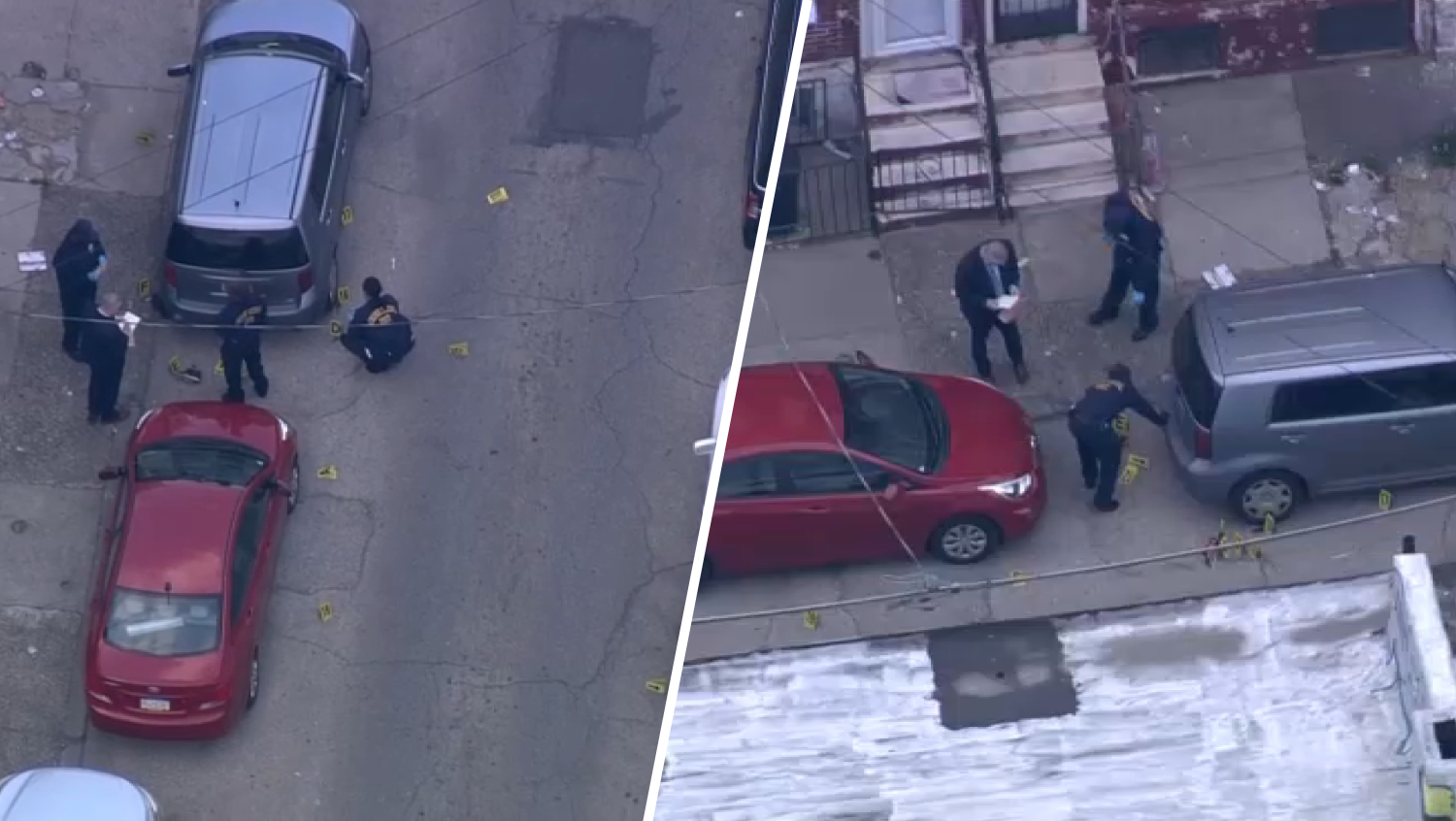Kevin Reilly was in the prime of his life, playing football for his home team, the Philadelphia Eagles, when a rare cancer led to a career-ending amputation. Reilly lost his left arm, shoulder and five ribs. That was 1975. Today, he spends a lot of his time inspiring not just other amputees, but people who are trying to overcome just about any obstacle. In a couple of weeks, he will go up to Boston to visit with some of the people who lost limbs during this month's bombing. NBC10's Tim Furlong talked to Reilly about his life and his mission for Boston.
Q: First of all, explain what happened with your arm?
We were playing an exhibition game in 1975, and I got caught in the left shoulder, it was a big hit and I hit the ground and my shoulder was never the same again. I kept trying to rehab, and eventually discovered that my body had the unique ability to produce scar tissue by the name of Desmoid. Desmoid has one really bad property. It continues to grow. It will compete for territory within the body. It will strangle off blood vessels. It will strangle off organs. Now 12 doctors had probed my like you don’t even want to be probed. They were still misdiagnosing me. Finally I went to New York City to see this doctor. I wait two hours. I go in, he takes a look at my X-rays, tells me to take my shirt off, probes me for maybe 15 seconds and says, “What you have son is a Desmoid tumor.” He said, “We’re going to have to amputate your arm.” But he saved my life.
And after the surgery?
I was happy to be alive, but then I had some time to sit by myself and I actually started to wonder about life now and going forward and playing professional football and being on top of the world for a couple of years, this was a step down. And I started to have some pretty negative thoughts. That morning I was visited by a very well-meaning volunteer for the hospital. His name was Frank. He was 62 years old or so and I noticed immediately we had something in common -- he was missing his left arm. And one of the things he said to me was, “I’m here to help you establish a program for yourself now that you’re handicapped.” So when Frank leaves the hospital that day, I’m still a little depressed. Now I’m starting to dwell on all the things I can’t do one-handed. During this negative thought process I’m having, the nurse comes in and says,"There’s someone on the phone for you that I think you want to talk to."
And that was Rocky Bleier, who really inspired you, didn’t he?
Prior to getting on the phone with Rocky, everybody who’d come into the room had been very empathetic and sympathetic. “Oh, I’m sorry to hear about this,” “Oh my goodness, how do you feel?” "I'm praying for you." And it was really enabling me to feel sorry for myself. And I get this call from Rocky, and he was a football player I knew who’d had this crisis of his own. In Vietnam, his leg was battered so badly in an ambush that they wanted to fuse his leg together at the knee. He refused to let them. He rehabilitated for two years and came back to training camp and not only made the team, he went to four Super Bowls. He got my spirits up. He said, "Did any of the doctors and nurses talk to you about your limitations?" I told him there’d been this volunteer in who kinda depressed the hell out of me. He’s been without an arm for 45 years and I think he’s a little more of an expert than you and I. And that’s when Rocky said something I’ll never forget. He said, "Experts built the Titantic and amateurs built the Ark. Experts can be wrong." That was really a turning point for me. And I knew I had to figure out how too get on with life.
Local
Breaking news and the stories that matter to your neighborhood.
What is it like to know, that first time you wake up and you realize, "I'm missing a limb?"
Your first thought is, "Am I alive?" You know, these guys and gals in Boston have been through a lot of trauma and then you wake up and you find out you have multiple injuries. I think that's the biggest part. And then you start to do the "What if?" This is going to heal, that is going to heal, but I'm missing my leg or I'm missing my arm. I'll tell you, it just goes to the core of your brain that says, "I'll never be whole again. And I'll be missing something going forward and now I'm an amputee and now I'm handicapped. And my big point in counseling people is to tell them NOT. Not to change their dreams. Not to change their goals because there isn’t anything you can’t do with a prosthetic these days and the help you get, going forward.
But you knew yours was coming, you knew it had to be done, right?
Well, yes, but at 25 years old; I can remember playing a Dallas football game, Monday night football and they introduced special teams, we beat ‘em for the first time in four years, and here you are 25 years old, you’re playing for your hometown team, you know I had a 400 pound bench press, I ran a 4.740 and 230 pounds you think you’re invincible, that nothing will ever happen. It was a big fall from grace for me from being a professional athlete. Waking up in Sloan-Kettering Hospital minus my left arm, my left shoulder and five ribs. You have some pretty negative thoughts because left to your own mind you start to go negative and that’s when you need the support of people around you to tell you it’s not all that bad, you’re gonna survive this. And that’s when I come in tell you that you can not only survive, you can thrive. It’s not going to be a rose garden, you’re going to have to work hard. You’ve got your challenges, but so does everybody.
Did you train to be a counselor?
Not really. Not initially. You get asked to do one here and do one there and Senator Carper with the state of Delaware asked me to go to Walter Reed and I went down there with a guy named Walter Reilly and met 12 amputees and it was only going to be a one time thing. What I didn’t realize, Tim, is the instant kindred spirit that they felt, here, I was one of them. I never realized what a resource I was after being out 30 years. They wanted to know about phantom sensation, they wanted to know about dating, they wanted to know, “Will I ever get a real job in the world.” I mean we got down to the nitty gritty real quick. I don’t think a doctor, or even a counselor can do the same thing because you don’t see them as knowing what you’re going through. So, I went back and got my Peer Visitor training. It’s 8 hours about what not to say, but I can tell you from experience what can happen. I stay away from recommendations. The best thing you can do is listen.
How did you get involved in counseling victims of the Boston bombing? Did Boston call you?
No. I put it out there on social media, and I said, does anybody know anybody, and all of the sudden, things started to click. And John D. Kelly the IV who is an orthopedic surgeon at Penn called some of his buddies up at U Mass and John Reilly, a friend of mine, got in touch with Senator Carper and Congressman Carney down here and the next thing you know, we’re making connections. And Dr. Mark Rojas from Mass General got back to us and said that right now they’re in this situation where it’s kind of critical with care for them and there’s other injuries and they’re kind of being inundated with media and family. He said in a couple of weeks they’ll hook us up with some people who want to talk. I’ll go wherever they need me. Right now these guys have had help from all different areas, but three to four weeks from now, these guys are gonna want to ask all the questions these guys from Walter Reed used to ask me. When will the phantom sensations go away? Can you tell me, how does it feel? What do I do when people stare at me?
Has this become your calling at this point?
Well, you know, you and I both went to the same high school (Salesianum) and they taught us to be of service to others and you wonder why these things happen to you and maybe it happened so I could be of service to others. Because people sure did help me when I was going through this.
Are there any days when you just feel bad for yourself?
I forget that I got one arm now. It’s been that long.
Regrets?
I have no regrets. I wish I had done some things differently. But I didn’t. I can’t change things. What I tell people is the only thing I can control is my attitude.



